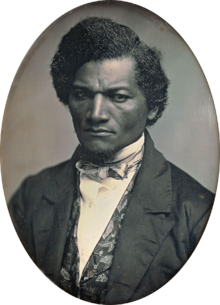Frederick Douglass, born Frederick Augustus Washington Bailey around 1817 or 1818, was beyond a doubt one of the pivotal figures in America's fight against slavery. Well known as a passionate social reformer, abolitionist, orator, writer and statesman, Douglass' numerous roles amalgamated to bring forth the essence of his unrelenting stride towards freedom and equal rights.
Early Life and Escape from Slavery
Douglass was born into the oppressive system of slavery in Maryland. It was from there that he managed to escape, earning himself a new life in the states of Massachusetts and New York. His escape did not signify a mere personal victory, but it marked the birth of an influential leader of the abolitionist movement. The once enslaved Frederick Douglass quickly came into the national limelight as an eloquent orator and insightful writer of anti-slavery content. His intellectual prowess consistently debunked the baseless arguments of enslavers who insisted that enslaved people lacked the intellectual capacity to function as independent American citizens. It was, in fact, his calibre as a bright orator that led many Northerners to be sceptical of his previous status as a slave, which ultimately prompted him to write his first autobiography.
Literary Contributions
Douglass was not only an impressive speaker but also a compelling writer. He penned down three autobiographies, the first of which was the highly impactful "Narrative of the Life of Frederick Douglass, an American Slave" (1845). This book quickly turned into a bestseller, proving instrumental in the abolition movement. His sequel "My Bondage and My Freedom" (1855) was equally influential. After the Civil War, Douglass did not rest on his laurels. He continued his fight against slavery, actively advocating for the rights of freed slaves. His final autobiography, "Life and Times of Frederick Douglass," unfolded his life up until 1881 and was revised in 1892, shedding light on his relentless campaign for civil rights.
Advocacy and Political Involvement
Douglass was an ardent supporter of women's suffrage, firmly believing in and promoting equal rights for all. He also stepped into the realm of public service, holding several public offices. Without his knowledge or consent, history records Douglass as the first African American nominated for vice president of the United States, sharing the Equal Rights Party ticket with Victoria Woodhull.
Douglass's advocacy was not myopic but was underpinned by a robust belief in dialogue and alliances across racial and ideological divides. An example of his openness can be seen in the way he engaged in discussions with slave owners. When criticized by radical abolitionists, who carried the motto "No Union with Slaveholders," Douglass famously retaliated, "I would unite with anybody to do right and with nobody to do wrong."
This statement signifies his unwavering adherence to the liberal values of the U.S. Constitution. He was not just against owning slaves; he was a stalwart cultivator of democratic principles and freedom.
In essence, Frederick Douglass stands as an indomitable figure, whose life encapsulates a long journey from the chains of slavery to becoming a cherished national leader and orator. His eloquent speeches, powerful writings, and relentless advocacy for equal rights exemplify his enduring legacy in the annals of American history. His life remains a testament to the power of resistance, resilience, and relentless pursuit of justice and equality.


